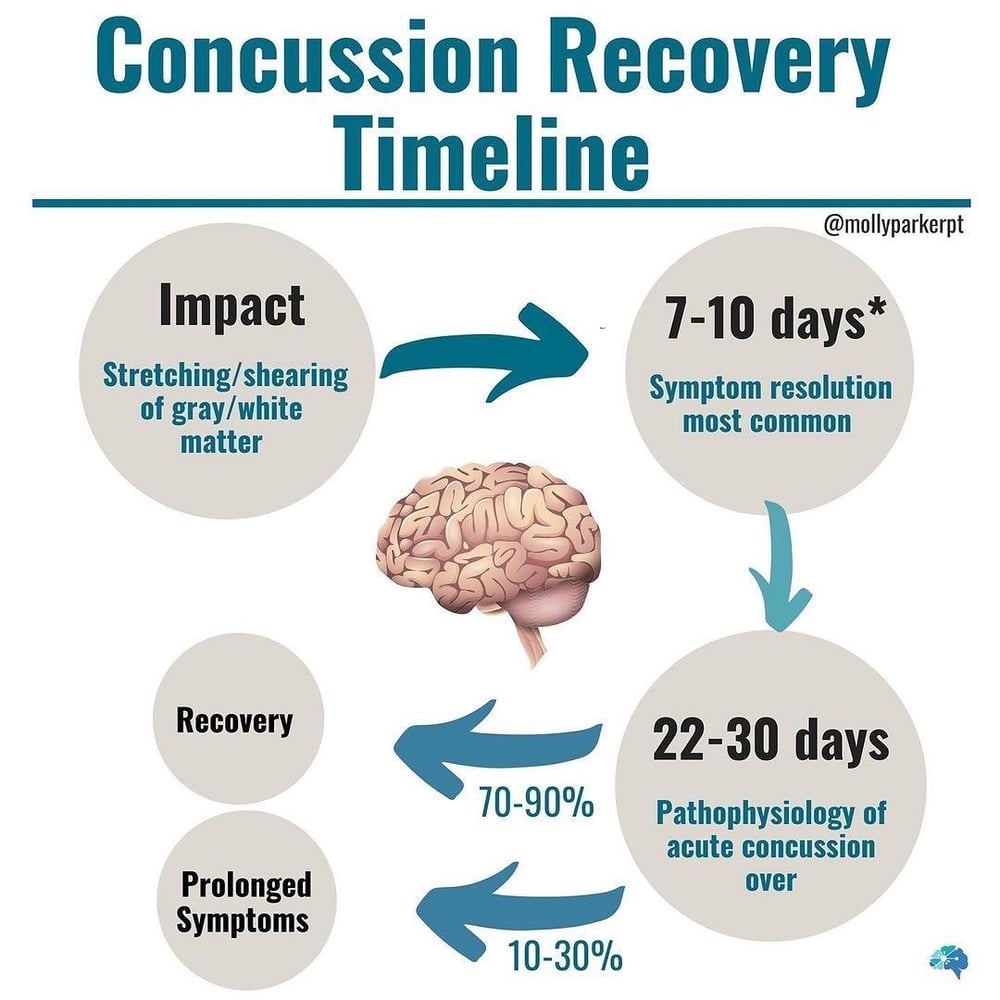Concussions are Serious.
The CDC has called TBI a silent epidemic. Over 50% of TBI is not diagnosed or properly treated.
Welcome to our concussion page to learn more about concussion aka traumatic brain injury.
Brain injuries can be life threatening and result in lifelong problems. Please call 911 & get medical help asap. Every concussion should be evaluated.
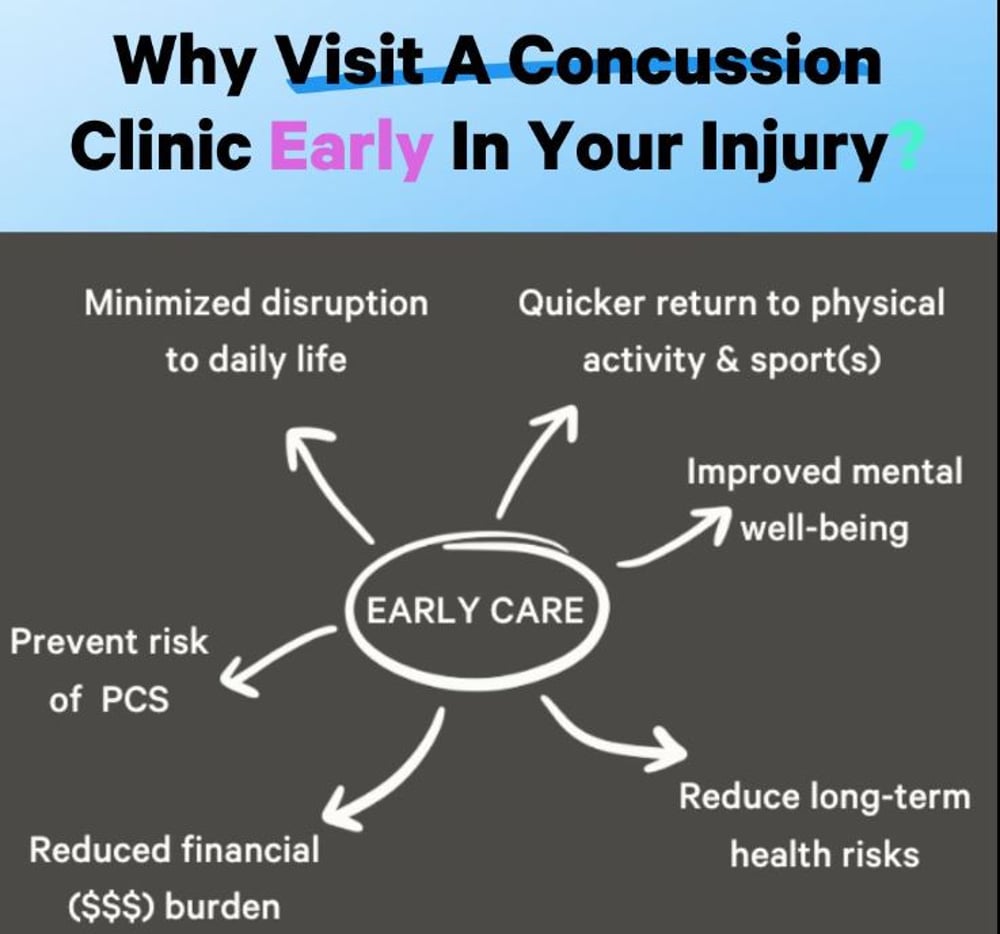
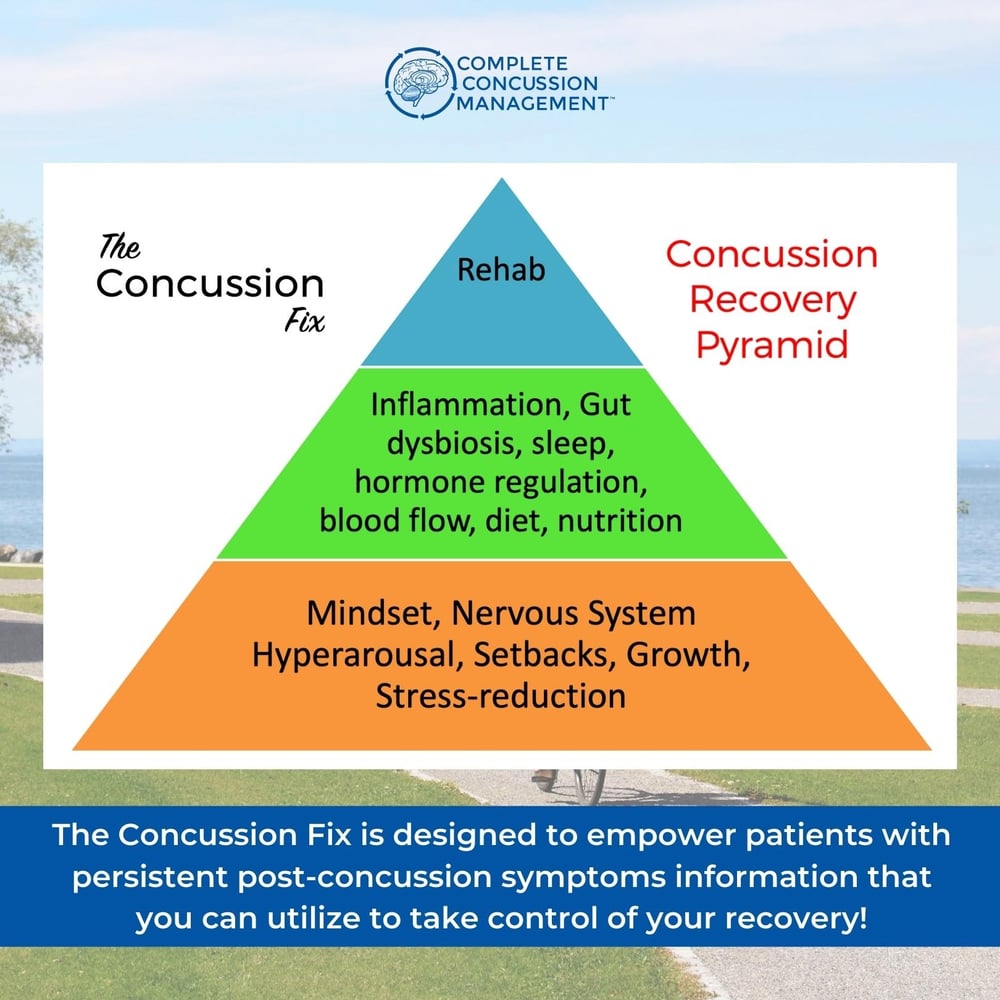
Concussion Management
The current approach used today is” Recognize; Remove; Rest; Rehab.” Studies have shown that individuals who were assessed by a healthcare professional within the first 24-48 hours had a faster return to play and less symptom intensity. Common symptoms of an acute concussion are headache, “feeling out of it”, sensitivity to light, memory loss, dizziness, neck pain, and sleep disturbances.
What happens in the brain after a concussion?
The Brain Injury Association of America defines a TBI as “an alteration in brain function, or other evidence of brain pathology, caused by an external force.”
Concussions
A concussion is a heterogeneous mild traumatic brain injury (mTBI) characterized by a variety of symptoms, clinical presentations, and recovery trajectories. By thematically classifying the most common concussive clinical presentations into concussion subtypes (cognitive, ocular-motor, headache/migraine, vestibular, and anxiety/mood) and associated conditions (cervical strain and sleep disturbance), we derive useful definitions amenable to future targeted treatments.
3 Stages of Brain Injury
It's commonly accepted that there are 3 main stages of Traumatic Brain Injury. The earlier that we can help resolve the symptoms and normalize brain function the better.
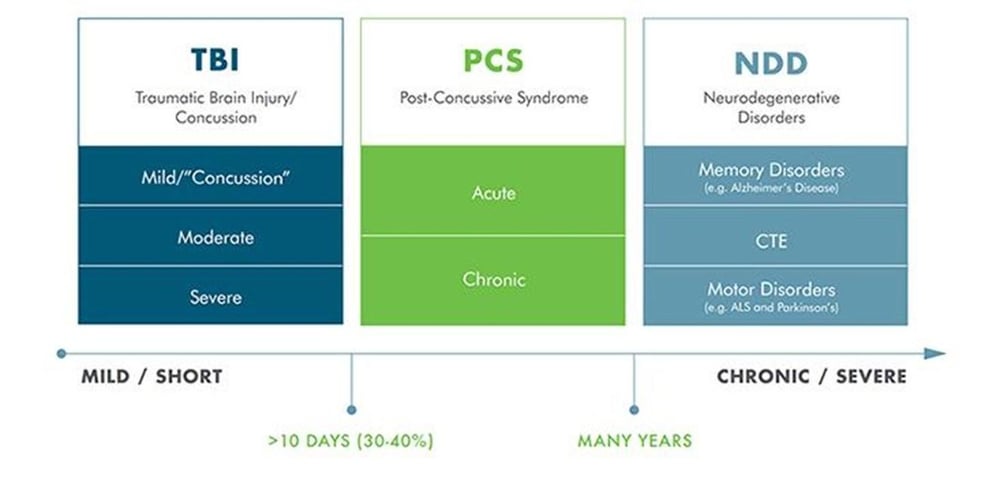
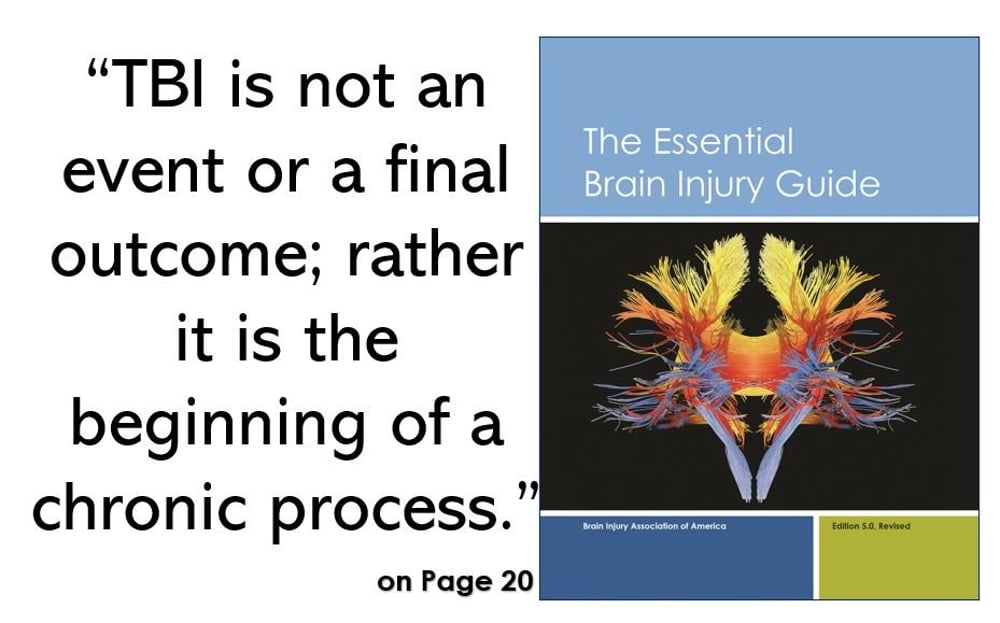
“TBI should not be treated as an isolated event, but as an evolving condition that may have long-term effects”.
National Academies of Sciences, Engineering, and Medicine 2022. Traumatic Brain Injury: A Roadmap for Accelerating Progress. Washington, DC: The National Academies Press.
Acute TBI
Stage 1 of a concussion
Nervous system injuries can be serious, and we can help.
The Concussion Treatment Pyramid
Symptom Relief & Tissue Healing!
Our focus is to normalize brain function & tissue healing. We want to prevent you from going into stage 2 or PPCS.
No drugs, No surgery & No injections.
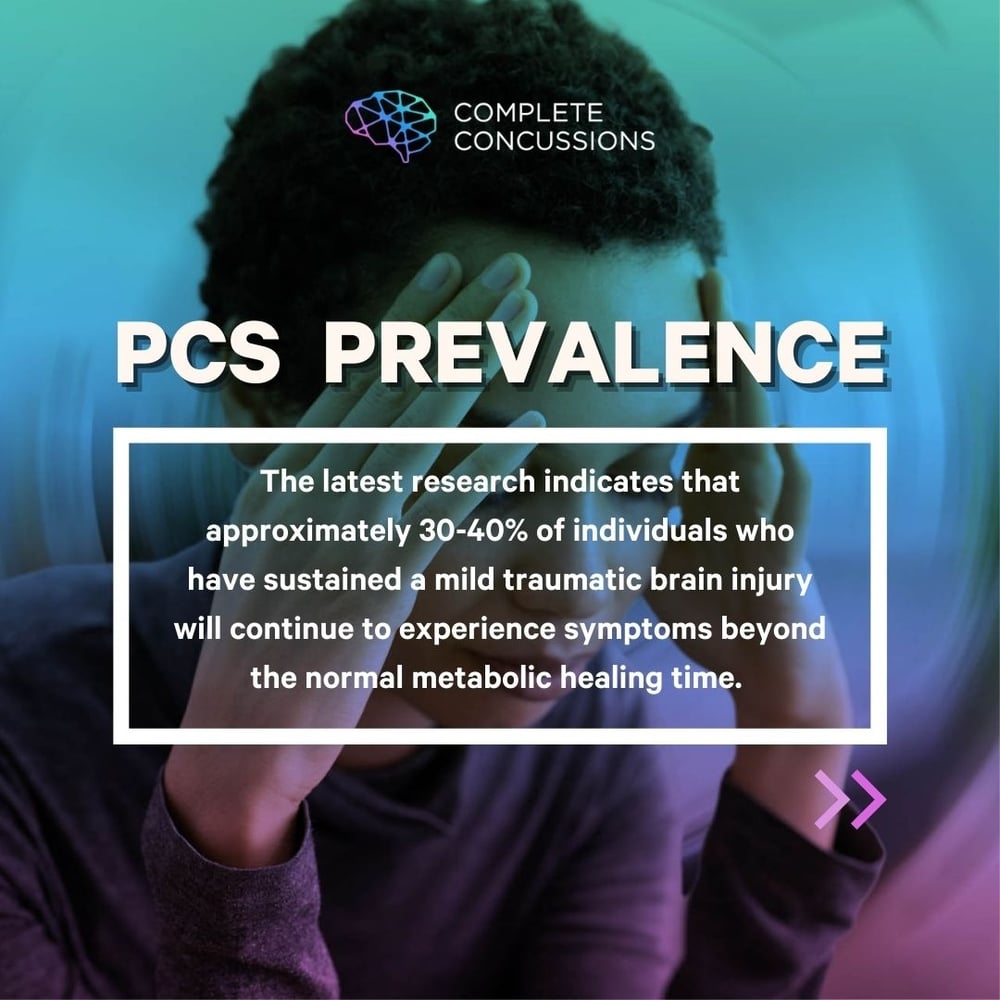
PPCS - Stage 2
30% of patients progress to persistent post-concussive symptoms — also called post-concussion syndrome — occurs when symptoms of a mild traumatic brain injury last longer than expected after an injury. These symptoms may include headaches, dizziness, and problems with concentration and memory. They can last weeks to months.
PCS - Stage 2
Persistent post-concussion syndrome (PPCS) is a complex and debilitating condition that can develop after head concussions or mild traumatic brain injury (mTBI). PPCS is characterized by a wide range of symptoms, including headaches, dizziness, fatigue, cognitive deficits, and emotional changes, that can persist for months or even years after the initial injury.
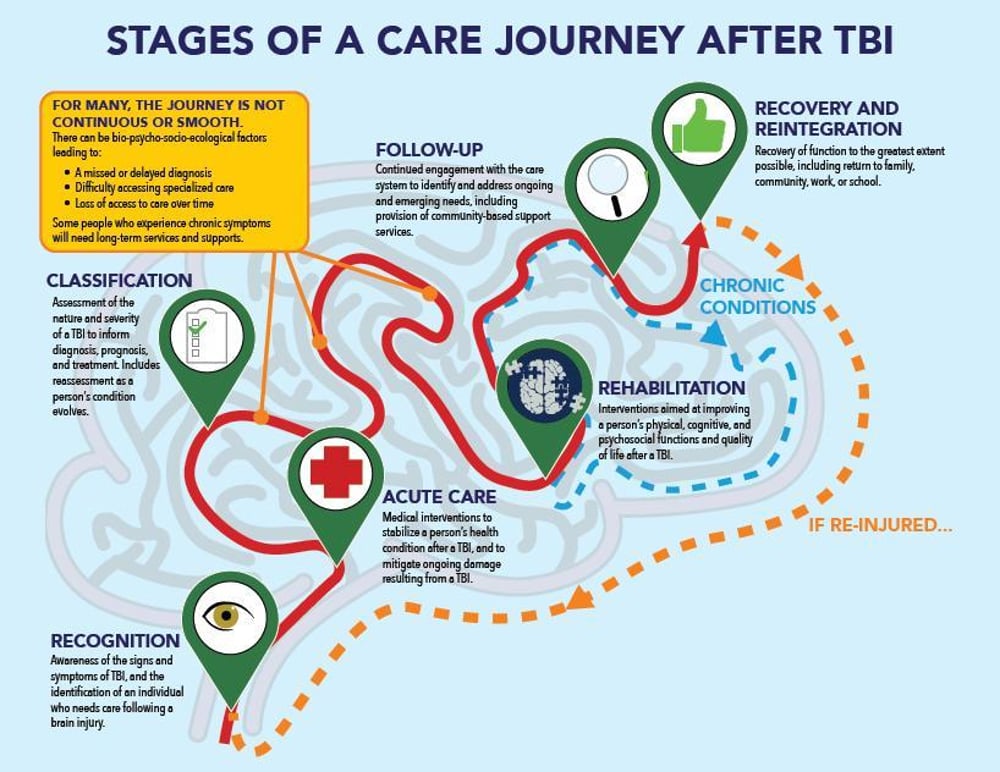
Stage 3
“The purpose of this article is to encourage the classification of TBI as the beginning of an ongoing, perhaps lifelong process, that impacts multiple organ systems and may be disease causative and accelerative. Our intent is not to discourage patients with TBI or their families and caregivers, but rather to emphasize that TBI should be managed as a chronic disease and defined as such by health care and insurance providers." Masel BE, DeWitt DS. Traumatic brain injury: a disease process, not an event. J Neurotrauma. 2010 Aug;27(8):1529-40.
There are many types of Brain Injury
A concussion is a brain injury caused by acceleration or deceleration of the brain within the skull following a significant impact to the head or elsewhere on the body, most commonly occurring during a sporting event. The impact causes a biochemical imbalance within the brain cells, resulting in decreased blood flow and temporary energy deficits within the brain.
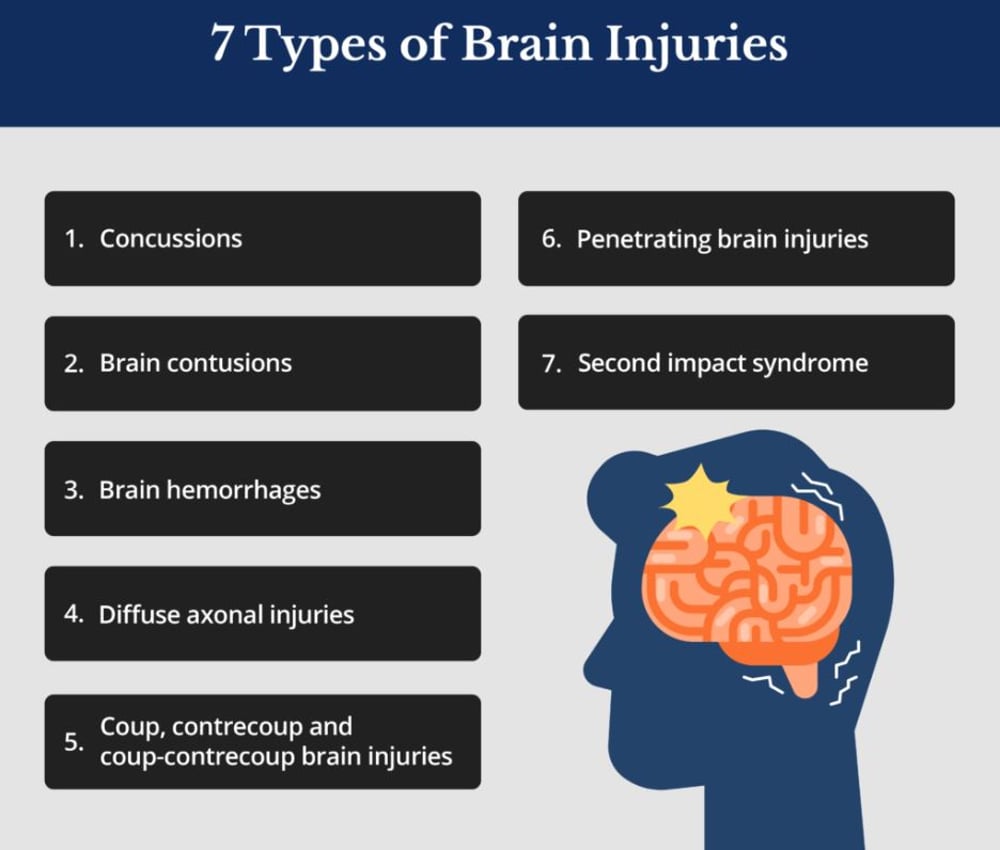
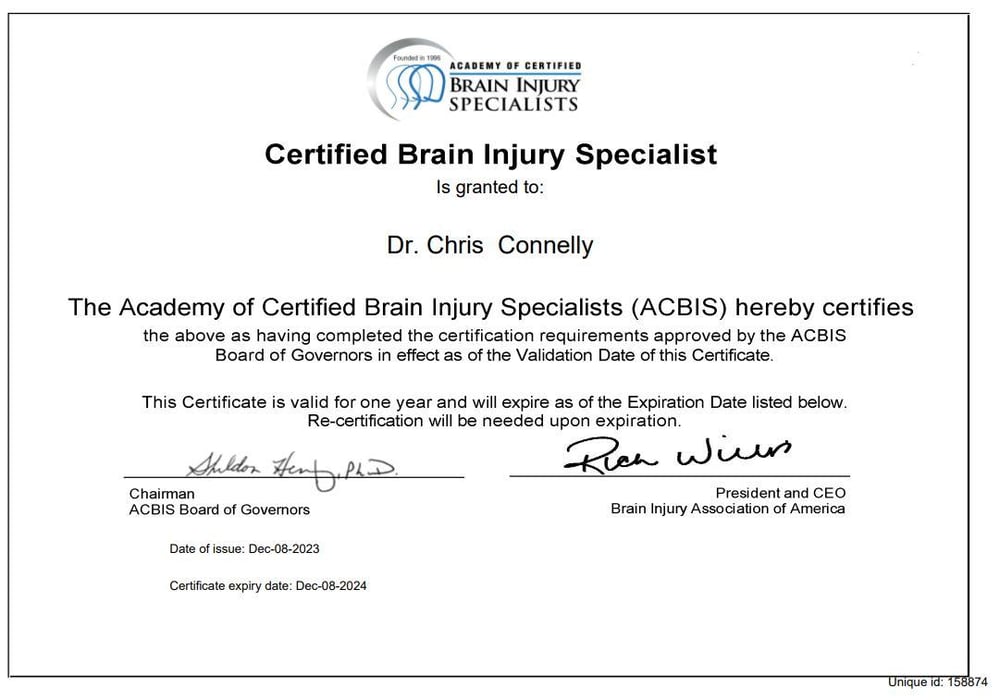
Training
Dr. Connelly DC has advanced training in brain injury.
Certified Chiropractic Sports Medicine Specialist
Brain Injury Association of America
Complete Concussion Management
Certification in Motor Vehicle Trauma (C.M.V.T.)
Personalized care that gets you back on track.
If we can help you, we will tell you. If we cannot help you, we will tell you that too & refer you to a medical doctor who can help you. Working together to get patients better!
- Monday - Friday09:00 am - 07:00pm
- Saturday09:00 am - 12:00 pm
- SundayClosed
